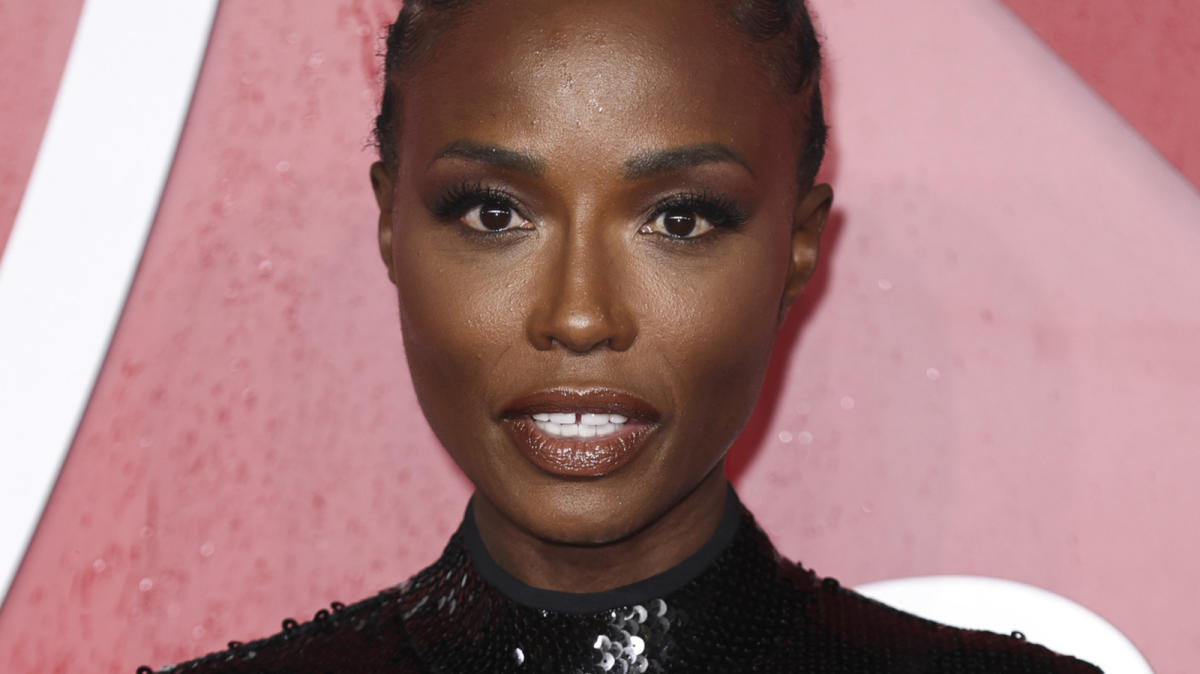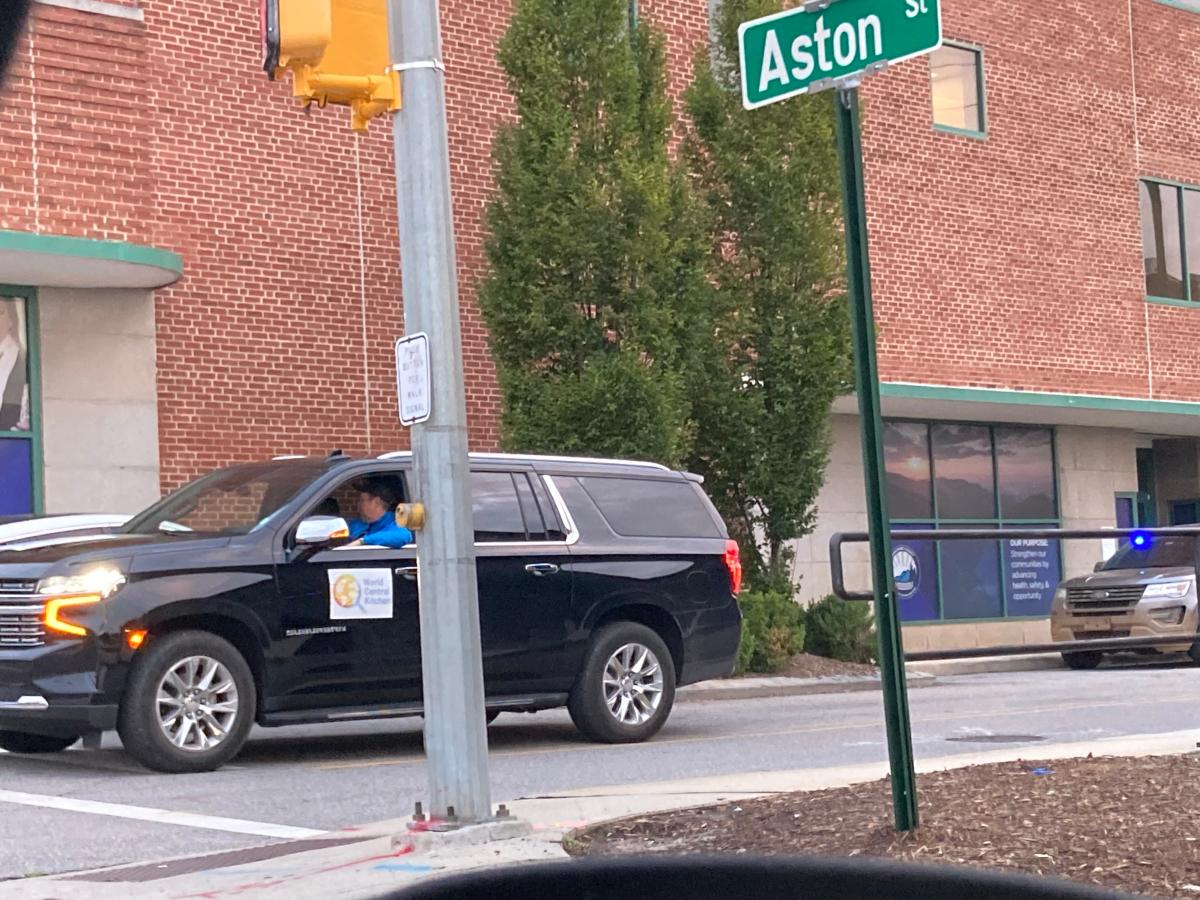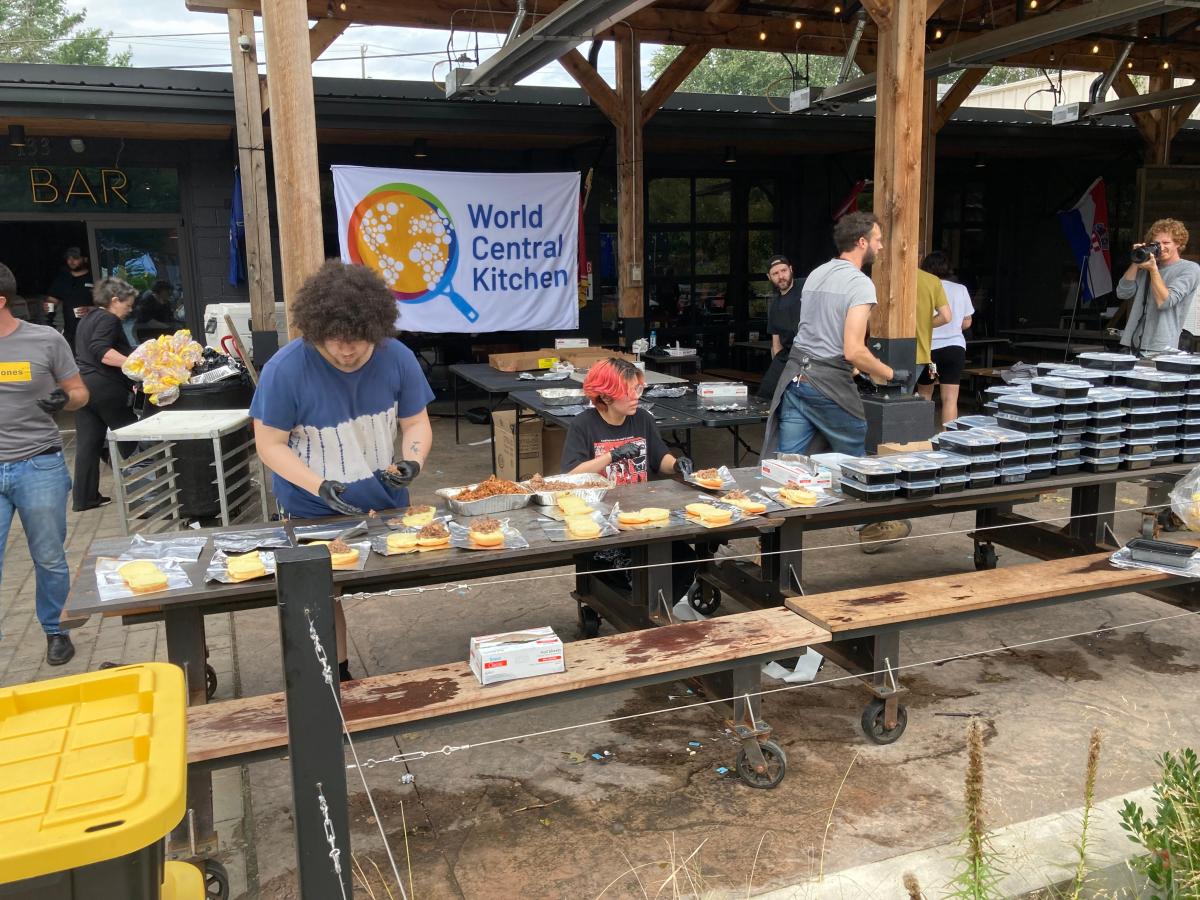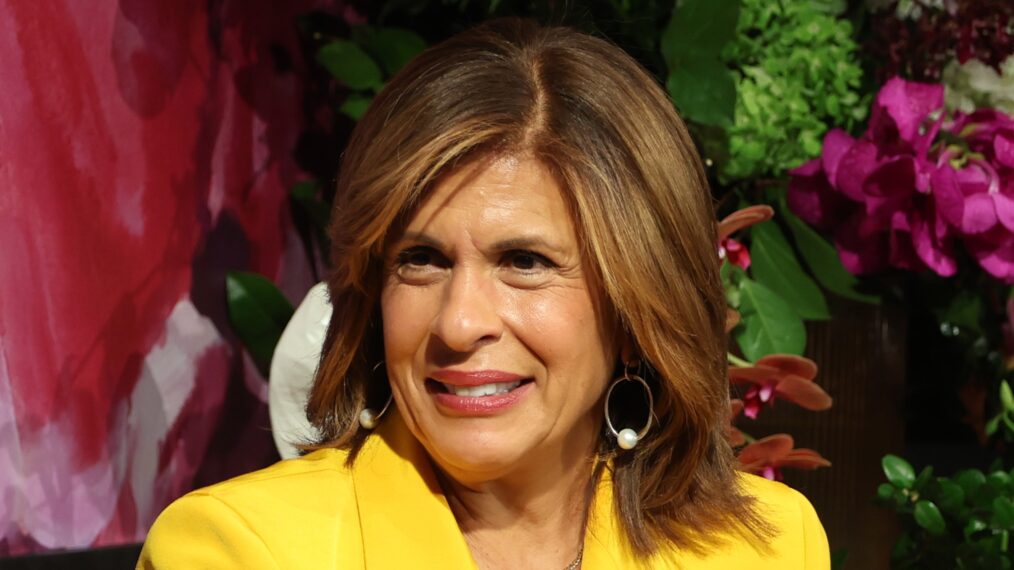Success tastes sweet for expert baker and Food Network host Lorraine Pascale. It took a lot for her to get here, but the last thing Pascale wants is for people to feel bad for her. Given up at birth and raised in a tumultuous living situation in her native U.K., circumstances beyond Pascale’s control made for a tremendously difficult childhood. Pascale still grapples with emotional scars left by her early days, though it’s not her nature to be bitter about things. Despite tragic moments, “victim” is not in Pascale’s vocabulary.
There are many silver linings to Pascale’s story, most of which can be credited to her perseverance, courage, and curiosity. Deep self-reflection and her continual journey toward general wellness compelled Pascale to spread awareness about impactful social issues, from advocating for the U.K.’s foster care system to the importance of seeking healthy romantic relationships. It has also given her a remarkable capacity toward forgiveness. Reflecting on life lessons in 2016, Pascale told The Daily Mail, “Selfishly, I’ve forgiven them for my own emotional freedom. I could say ‘Poor me,’ but that doesn’t get you anywhere.”
Pascale’s career trajectory is one of the most diverse in the industry. She explored, and even found much success in other industries before discovering her true passion within the culinary arts, and the road was far from easy. These are some of the tragic details Lorraine Pascale overcame to achieve the fulfilling life she has today.
Read more: The Biggest Scandals To Ever Hit The Food Network
She Was Placed Into Foster Care At 6 Weeks Old
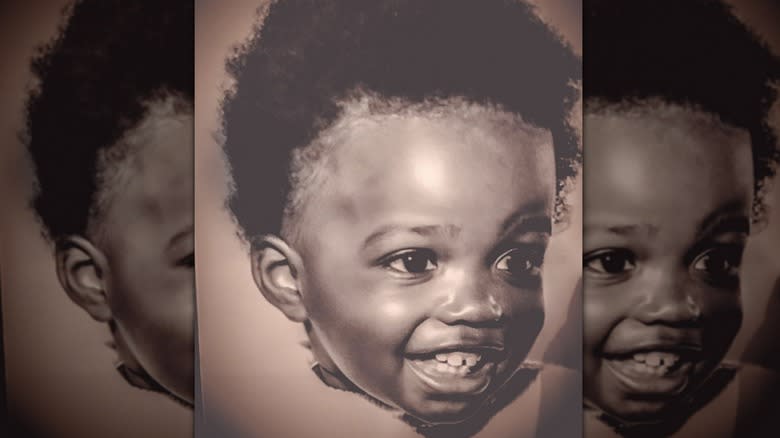
On November 17, 1972, Lorraine Pascale was born at the Hackney Mother’s Hospital in London. She was Lorraine Victoria Brown then, the daughter of unmarried, Caribbean parents who had no intention of keeping her. At just six weeks old, Pascale was taken into foster care by Marion and John Bird, a young married couple living in Leytonstone, a region of East London. The Birds cared for Pascale for six months of her life, until she was sent to live with her biological father. It would be a brief reunion.
Pascale lived with her father for the next six months, but at barely a year old she has no recollection of this period. When Marion Bird paid a visit to Pascale’s new home to see how she was doing, she was shaken by what she saw. Under her father’s care, Pascale was undernourished and unhappy. Her hair had fallen out, she had lost a significant amount of weight, and cried inconsolably. Bird placed an emergency call to social services to report her observations. Shortly after, Pascale was removed Pascale from her father’s home and returned to living with the Birds. She would remain with her foster parents until her adoption at 18 months old.
Her Adoptive Mother Was Physically Abusive
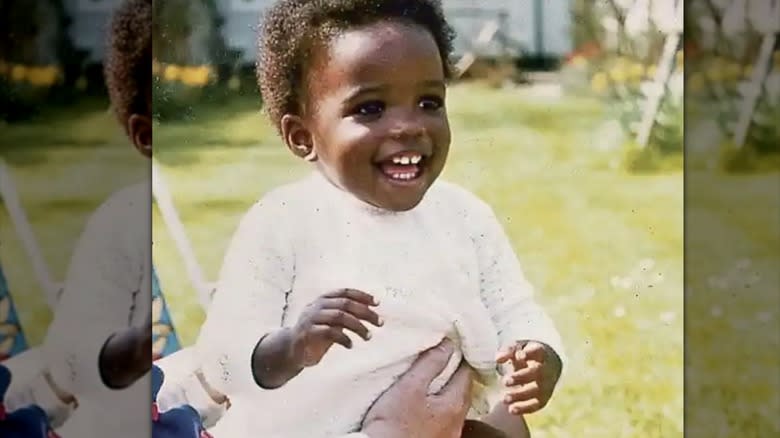

It was heart-wrenching for Pascale’s foster parents, Marion and John Bird, to place the 18-month-old child in the custody of Audrey and Roger Woodward. The Birds wanted to adopt Pascale, but were expecting a biological child at the time and had signed on as temporary caregivers. Besides, the Woodwards were well-educated and middle-class, the Birds thought Pascale might have better opportunities if they adopted her instead. They couldn’t have known what would come next.
The Woodwards raised Pascale in Oxfordshire, and gave her the middle name “Pascale” because she was adopted on Easter. Her new living situation was ordinary, but everything changed when Audrey and Robert Woodward got divorced. After the split, three-year-old Pascale and her older brother Jason — the Woodwards’ biological child — lived with their mother full-time. The decision would prove to be a dangerous one.
Struggling to cope with the aftermath of divorce and life as a single parent, Audrey Woodward spiraled into alcoholism. When she drank, she physically lashed out at her children. In 1976, Woodward admitted to social services that she hit the children hard when she lost her temper, and was particularly rough on Pascale. She claimed to harbor feelings of confusion over her relationship with her daughter, and had once fantasized about pushing Pascale under the wheels of a passing truck. The abuse would continue for several more years.
At Age 8, Pascale Re-Entered The Foster Care System
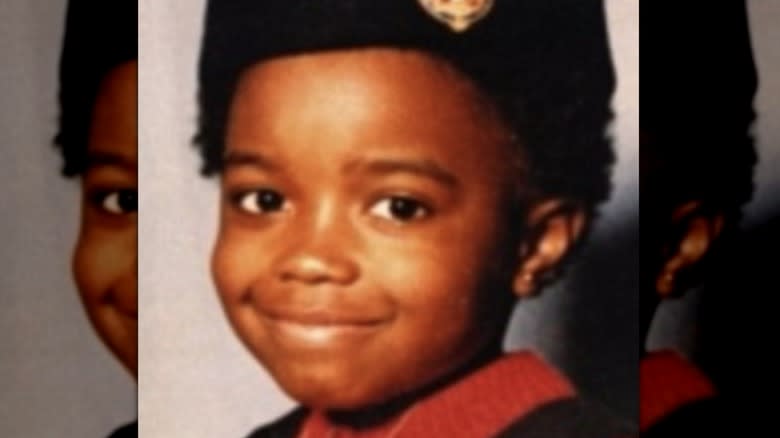

The physical abuse Pascale suffered at the hands of her adoptive mother, Audrey Woodward, came to a head in 1981. Woodward — whose custody of Pascale had already been flagged as high-risk — contacted social services, insisting that the child be placed elsewhere for her own safety. Upon further investigation, Woodward revealed she had attempted to strangle and suffocate Pascale, and expressed that the only way to stop herself from harming the youngster was to lock her in her room. Struggling with sobriety and dreading extended time with the children during school break, Woodward’s shocking admissions resulted in Pascale returning to foster care.
Initially, she was sent to live with the family of her friends from school. Pascale’s father has said that he was unaware of how bad things had gotten, and that due to living on a one-room boat, he didn’t have the space to take his daughter in. The second foster family Pascale was placed with were very religious. Pascale says she was matched with them because they had been missionaries in Uganda and had experience interacting with Black people. By the time she was ten, she was permitted to live with her adoptive mother again, but the whole experience made her a hyper-vigilant, self-sufficient child.
She Became A Teenage Fashion Model At A Time When Racism Was Rampant In The Industry
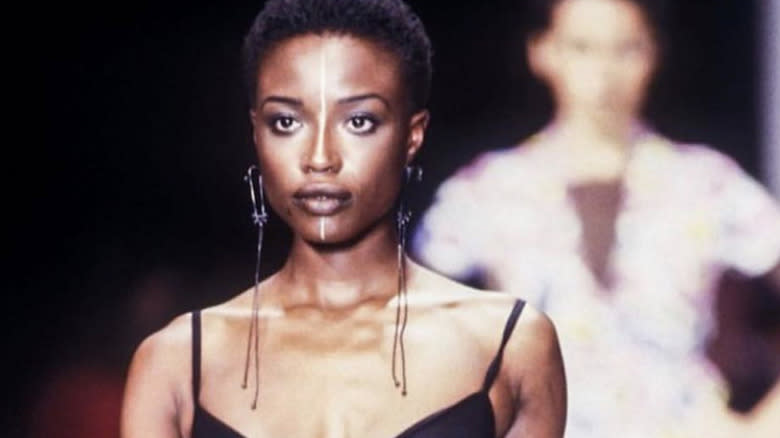

The “I used to model” line has been thrown around to no end in the media world, usually referring to department store catalog work and the like. Lorraine Pascale used to model … with Naomi Campbell and Kate Moss. She was scouted at age 16 by Beth Boldt, the same agent who plucked fellow Naomi Campbell from obscurity in the mid-1980s. Pascale was a bonafide ’90s top model, regularly appearing in high-fashion editorials and strutting the runway for Chanel, Paco Rabanne, Calvin Klein — the biggest and best shows. The early ’90s aligned with the peak supermodel era, yet it was also a decade in which unchecked racism was common and accepted amongst fashion’s elite.
Synchro, the agency Pascale was signed with, shaved off her hair. Pascale hated it, but the bold beauty choice worked. She posed for the most renowned fashion photographers of the day, and while Pascale thinks the pictures are beautiful, she clarifies that the “ethnic” look was in demand then. As a black model, Pascale rode camels and elephants into photo shoots, and decked out in African-inspired jewelry. Despite the stereotyping, Pascale maintains she always stayed true to herself. Obstacles understood, Pascale found much success. She was the first black British model to appear on the cover of American Elle in 1994. She starred in ads for Levi’s and Häagen-Dazs. At age 27, she walked away.
She Married Young And Divorced Soon After
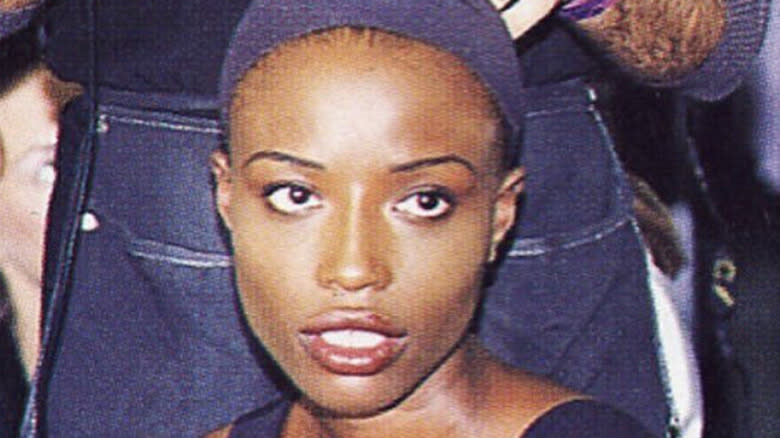

In her fashion era, Pascale rubbed shoulders with celebrities and socialites on a regular basis. Kaz Balinski-Jundzill was one such character. He was a jazz musician who was comfortable assuming the role of an unaffected bohemian — but in reality he was a Polish count. Pascale and Balinski-Jundzill married in 1995, and welcomed daughter Ella Balinska the following year. The marriage was short-lived.
In reflection, Pascale says she married young in order to feel secure. After enduring a traumatic childhood and enduring the high stakes of the modeling world, her longing for security is understandable. The couple divorced in 2000, and while Pascale has said the ordeal prematurely turned her hair gray, she also expressed that it motivated her to further examine the trust issues she brought into relationships.
Due to growing up with a baseline of chaos, Pascale created drama in otherwise peaceful situations. Speaking to the podcast “Crisis What Crisis” in 2021, she said, “I remember my therapist used to say to me, ‘The thing is, Lorraine, when life is going calm and well for you, sometimes you just throw in a hand grenade, a drama hand grenade and create a crisis.” Silver lining? Following the divorce, Pascale and Balinski-Jundzill were able to co-parent their daughter amicably.
Pascale’s Own Daughter Is The First Blood Relative She Ever Knew
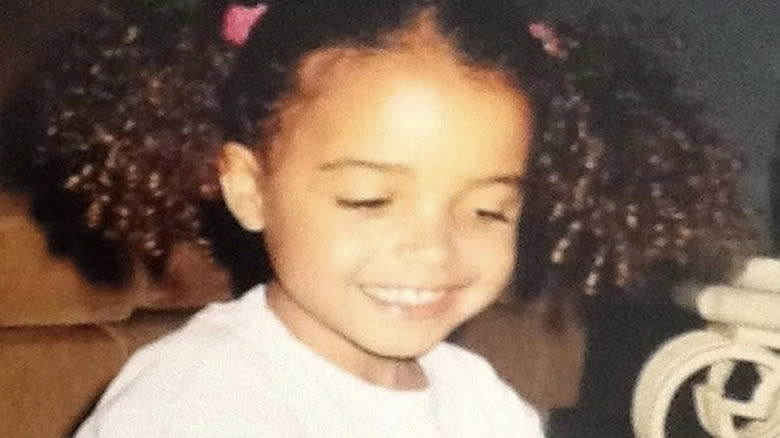

When Ella Balinska, Pascale’s daughter with then-husband Count Kaz Balinski-Jundzill, was born in 1996, she was the first blood relative Pascale would build a relationship with. Pascale anticipated Blainska’s birth as some sort of aha, full-circle moment that could bring closure to her adoption story. It didn’t happen quite like that. Upon seeing her daughter for the first time, Pascale was simply taken by the fact she was now a mother to a beautiful baby. From the outset, Pascale wanted to make her daughter’s upbringing as stable as possible. It would be a direct contrast to her own experience.
The marriage between Pascale and Balinski-Jundzill didn’t last, but the close bond between Pascale and her daughter never wavered. Discussing motherhood with The Standard in 2014, Pascale said, “It has made me try to do the opposite of what I experienced. Always making sure that I am there, always checking in with how my daughter is feeling, and just the ordinary things that good parenting is about.” Ella Balinska, now in her late 20s, is an actress.
As A Young, Single Mother, Pascale Struggled To Find Direction In Her Career
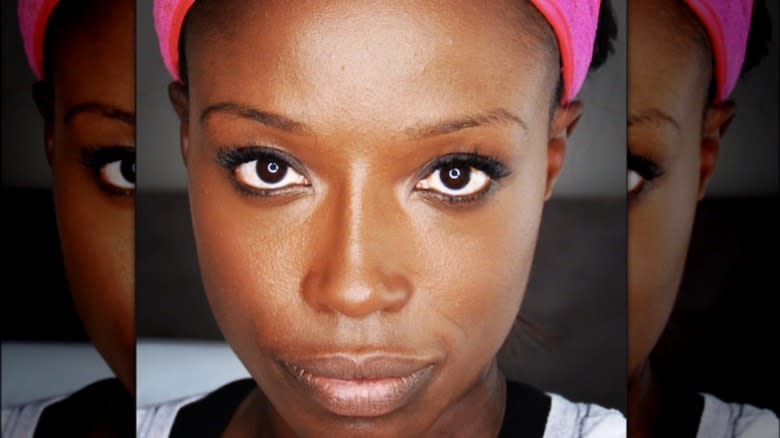

Adjusting to single motherhood and ready to transcend from model life, Pascale centered her focus on the next chapter. Through her work in fashion, Pascale was able to earn enough to purchase a house in London. It was home base for Pascale and her daughter as she tried to find a career she felt passionate about.
Modeling had afforded Pascale with an upper-class lifestyle, but the yearning to do something more creative was a pull she couldn’t deny. She bounced in and out of a string of exceedingly diverse professions. When she tired of being a Skoda car mechanic, Pascale tried her hand at becoming a hypnotist and trained at the London College of Clinical Hypnosis. A stint in secretarial work taught her how to touch type. She studied interior design and worked as a photographer’s assistant. When nothing seemed to stick, Pascale enrolled in veteran British culinarian Prue Leith’s School of Food and Wine in 2005.
There, Pascale knew right away that she was finally on the right path. She enjoyed baking and trying different foods as a child, and at Leith’s school, Pascale tapped into those foodie instincts again. She left the experience with a specialty in baking, and gained work experience at the Mandarin Oriental Hotel and London’s Hummingbird Bakery. In 2009, Pascale opened her own cupcake shop.
Her Foray Into Food Television Was Highly Criticized
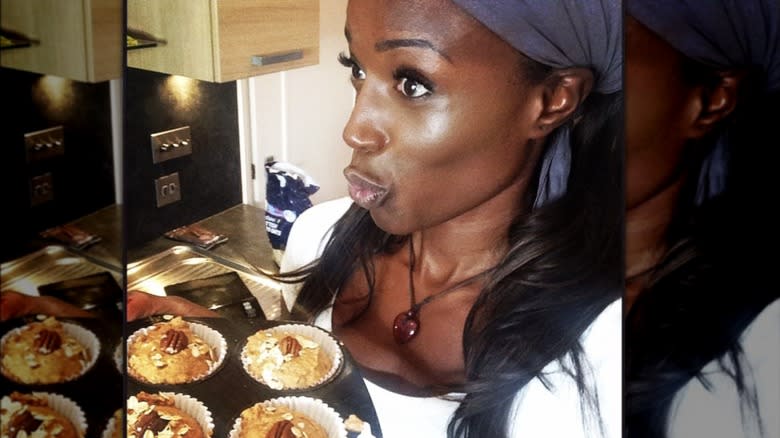

Pascale would eventually sell over one million cookbooks in the U.K. and become a fixture in celebrity chef circles, but not before beating the odds in a notoriously harsh profession where women and people of color have to fight for a place at the table. First she had to get her foot in the door. As a high fashion model in the ’90s, Pascale became acquainted with Marco Pierre White — London’s premier bad boy chef and world-famous restaurateur. When she contacted him, he helped her build her brand.
White put Pascale in touch with the food director of Selfridges, who commissioned her to bake 250 cakes. She made her food television debut in 2008 as a guest on White’s “Great British Feast,” where he introduced her as Countess Lorraine Balinska. The BBC got interested, and in January 2011 she launched her TV series “Baking Made Easy.” Not everyone was buying Pascale’s latest venture.
There were plenty of skeptics who said Pascale should stick to what she knew: modeling. After everything Pascale had already overcome, she wasn’t about to let others’ negative judgement hold her back. Her charm and skill on “Baking Made Easy” won viewers over and led to more television opportunities. When the “Baking Made Easy” cookbook was released in conjunction with the six-week series, it became a No. 1 seller.
A Broken Engagement In 2013 Was The Subject Of Media Scrutiny
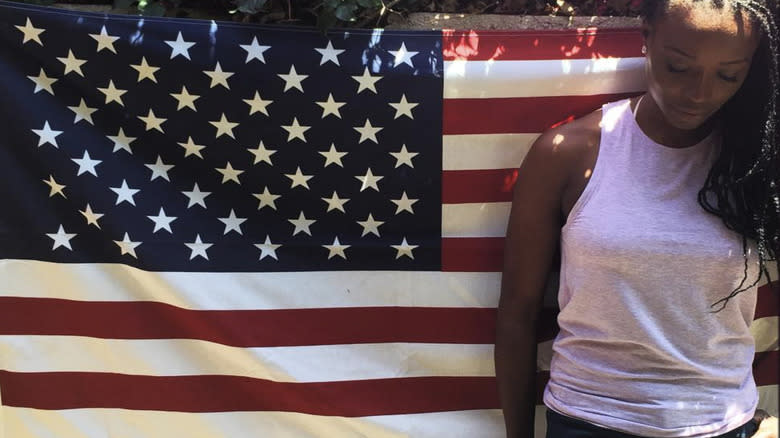

Public interest in Pascale’s private life has been a downside of her culinary spotlight. This was certainly true in 2013 when speculation about Pascale’s troubled love life peppered headlines. Pascale met music and film executive Ged Doherty at a dinner party in 2009, just as she was establishing a name for herself as a baking specialist. They were together for years before getting engaged. When the engagement was called off, it was speculated that Pascale had ended the four-year relationship.
Neither Pascale or Doherty spilled details about the broken engagement, but that didn’t stop the media from printing articles fueled by inside information. Insiders said that when Doherty’s career called him to Los Angeles, he invited Pascale to make the move to the U.S. with him, and she said no. In the years that they were together, Pascale’s turn as a media chef in the U.K. was steadily on the rise. A string of TV shows on the BBC and bestselling cookbooks had given Pascale a lot of professional legitimacy and momentum — and she wasn’t willing to give that up.
The misalignment of interests signaled a breakdown in their union. Pascale and Doherty were both saddened as they went their separate ways, yet Pascale later admitted that her trust issues once again contributed to the relationship’s end. Pascale married businessman Dennis O’Brien in 2021.
She Has Let Cyberbullying Get Under Her Skin
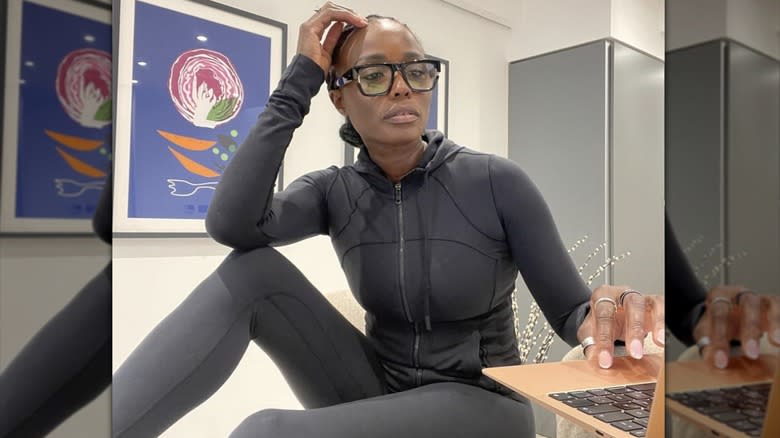

Entering the fame game in the social media age is a tough ride, and Pascale’s breakout into celebrity chefdom rode a parallel wave to social media prominence. As television offers rolled in, Pascale’s increased visibility made her a target for cyberbullying. The model-turned-chef hasn’t always been able to silently brush it off.
In 2016, Pascale guest hosted the BBC’s “Saturday Kitchen” after longtime host James Martin stepped away. Scrolls of hateful tweets rolled in, criticizing Pascale’s hosting abilities. Twitter trolls alleged that Pascale didn’t know how to cook and talk at once, interrupted the show’s guest, and had a dull on-screen presence. Pascale stoked the flames by tweeting quips back to several haters.
Pascale defended herself, saying that she’d taken the high road with cyberbullying for years and had simply had enough. She wasn’t exaggerating. Pascale has fielded hordes of online abuse, much of which was racist and sexist in nature. She’s been called “an ugly unevolved animal” on Twitter and in 2011, was the subject of a tweet that included such a tirade of slurs, friends convinced her to show it to the police. Once the authorities confirmed the tweet was sent from the U.S., no further action was taken.
Pascale Lost Her Mother To Dementia
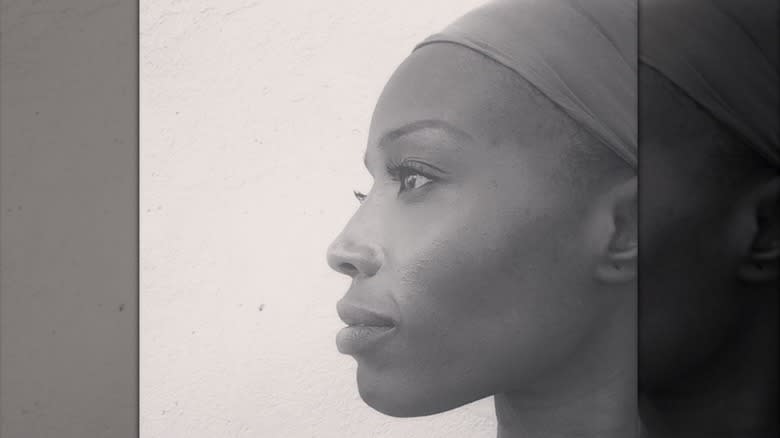

Pascale’s relationship with adoptive mother Audrey Woodward was complicated. In spite of the ups and downs, Pascale was devastated by Woodward’s dementia diagnosis. The 2014 documentary “Fostering and Me With Lorraine Pascale” saw the chef piecing together her experiences in the foster system — however, Woodward, who was pivotal in that story, was too ill to participate.
When the documentary was filmed, Woodward had lost the ability to speak. She passed away in 2015, and Pascale stated that she was floored by the loss. In the wake of her mother’s death, Pascale was hit with depression.
To combat her grief, she sweated it out in the gym. Pascale has acknowledged that she was able to forgive the physical abuse Woodward inflicted upon her as a child because she was struggling to cope and needed help. She credits her mother for her strong work ethic and for instilling her with the belief that achieving her dreams was possible.
COVID Restrictions May Have Cost Her A Steady Gig On Food Network
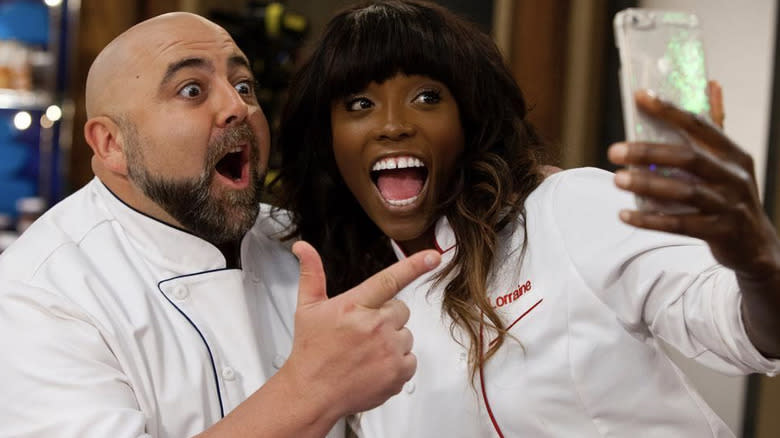

The culinary career Pascale had been building in the U.K. gained attention across the pond in the mid-2010s. Food Network thought Pascale would be a great addition to its baking championship series — and she jumped at the opportunity. As a judge on “Halloween Baking Championship” alongside Carla Hall and Zac Young, Pascale brought a playful yet candid perspective to the competition. She was also a regular judge on “Spring Baking Championship” with Duff Goldman and Nancy Fuller, and on “Worst Bakers in America.”
Then, suddenly, Pascale ceased to appear on Food Network’s roster. It was nothing personal; the culprit was COVID-19. Pascale rode out pandemic restrictions at home in the U.K., yet when bans were finally lifted, she didn’t return to Food Network studios. Carla Hall filled Pascale’s absence on “Holiday Baking Championship,” and although Pascale worked with Food Network for several years, it doesn’t appear that the U.K.-based chef has plans to do so again in the near future.
Pascale Suffers From PTSD
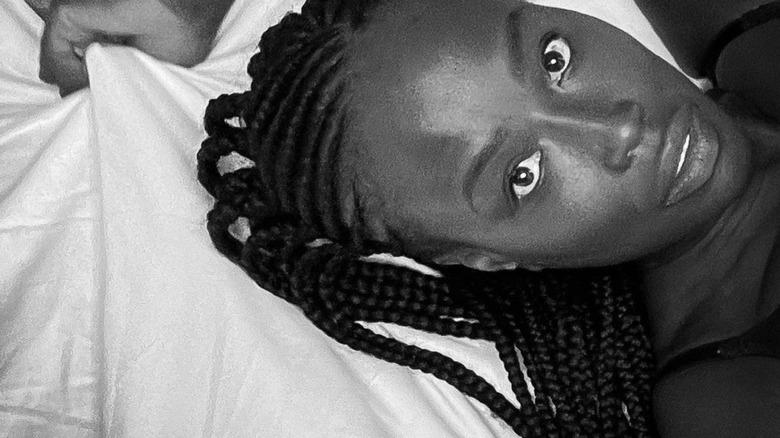

There is no doubt that Pascale is an emotionally enlightened individual who took control of her own narrative in tough times. Even so, she’s not immune to the residual emotional damage caused by her turbulent past. She has opened up about how the abuse and instability she faced in childhood has played a large role in the Post Traumatic Stress Disorder (PTSD), she still grapples with today. It’s a tough diagnosis, but in true form, Pascale refuses to assume a victim role of any kind.
Rather than wallow in hurt, Pascale works through her PTSD with the help of therapy, transcendental mediation, and exercise. She is embarking on a doctorate in psychology and holds public discussions where taboo subjects like mental health can be talked about openly and honestly. Pascale is also something of a life coach on social media. A huge believer in affirmations, she routinely shares the mantras she swears by in moments of weakness, anxiety, and self-doubt. What Pascale has accomplished in her 51 years is beyond impressive, but the motivation behind her success runs deep. Pascale has said that helping people heal from traumas in their pasts is one of her greatest purposes in life.
Read the original article on Mashed.





